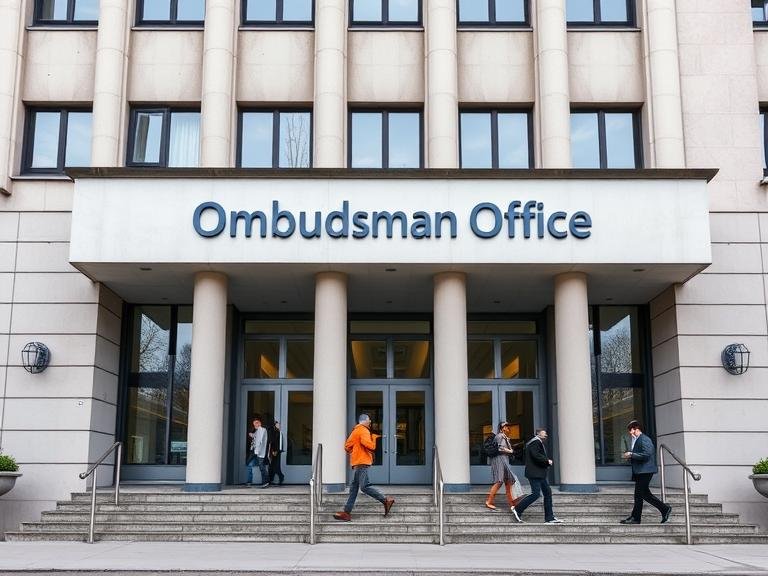The concept of ombudsmänner represents one of the most significant contributions to modern democratic governance and administrative oversight. Originating from Sweden in the early 19th century, these independent officials have become instrumental in protecting citizens’ rights and ensuring government accountability across numerous countries worldwide.
Table of Contents
Historical Origins and Evolution
The term “ombudsman” derives from the Old Norse word “umboðsmaðr,” meaning representative or commissioner. Sweden established the world’s first parliamentary ombudsman in 1809, creating a precedent that would eventually spread across the globe. The Swedish model emerged from a need to control administrative power and provide citizens with accessible recourse against government misconduct.
Initially, the Swedish ombudsman focused primarily on overseeing the judiciary and civil administration. This role expanded gradually to encompass broader aspects of public administration, setting the foundation for modern ombudsmänner systems. The concept gained international recognition after World War II, when democratic nations sought effective mechanisms to protect individual rights and maintain administrative integrity.
Core Functions and Responsibilities
Ombudsmänner serve as independent intermediaries between citizens and government institutions. Their primary responsibility involves investigating complaints against public authorities, ensuring that administrative decisions comply with legal standards and fundamental rights principles. These officials possess the authority to examine government actions, access relevant documents, and interview public servants.
The investigative process typically begins when citizens file complaints regarding administrative misconduct, delays, or unfair treatment by government agencies. Ombudsmänner evaluate these complaints objectively, determining whether public authorities have acted within their legal mandates and followed proper procedures. This oversight function extends beyond mere legal compliance, encompassing considerations of fairness, reasonableness, and good administrative practice.
Beyond individual case resolution, ombudsmänner identify systemic problems within government administration. They analyze patterns in complaints to detect broader issues affecting multiple citizens or entire departments. This systemic oversight capability enables them to recommend comprehensive reforms and improvements to administrative procedures.
Independence and Institutional Design
The effectiveness of ombudsmänner depends heavily on their institutional independence from the government entities they oversee. Most systems establish these positions through constitutional provisions or legislation that guarantees their autonomy from executive interference. This independence manifests in several key areas: appointment procedures, tenure security, and operational autonomy.
Appointment mechanisms vary across jurisdictions, but typically involve parliamentary selection or appointment by heads of state acting on legislative advice. These procedures aim to ensure that ombudsmänner possess the necessary qualifications while maintaining distance from partisan political influence. Once appointed, these officials usually serve fixed terms and can only be removed for serious misconduct, providing tenure security essential for independent operation.
Operational autonomy enables ombudsmänner to determine their investigative priorities, allocate resources, and publish findings without government interference. This autonomy extends to staffing decisions, budget management, and public communication strategies. Many jurisdictions provide constitutional or statutory protection for ombudsman communications, ensuring they can report findings and recommendations without fear of legal repercussions.
Powers and Limitations
Ombudsmänner typically possess broad investigative powers but limited enforcement capabilities. They can compel government agencies to provide information, documents, and access to facilities relevant to their investigations. Public servants are generally required to cooperate with ombudsman inquiries and may face sanctions for non-compliance.
However, most ombudsmänner lack direct enforcement powers and cannot overturn administrative decisions or impose binding remedies. Instead, they rely on moral authority, public pressure, and collaborative relationships with government agencies to implement their recommendations. This limitation reflects the delicate balance between democratic accountability and executive autonomy.
Some jurisdictions have experimented with enhanced enforcement mechanisms, including the power to issue binding recommendations or refer cases to specialized courts. These developments represent attempts to strengthen ombudsman effectiveness while maintaining their traditional role as mediators rather than decision-makers.
Global Variations and Adaptations
The ombudsman concept has been adapted to diverse legal and political contexts worldwide, resulting in significant variations in institutional design and operational scope. Nordic countries maintain traditional models focused on administrative oversight, while other nations have expanded ombudsman roles to encompass human rights protection, anti-corruption efforts, and specialized sectoral oversight.
Some countries have established multiple ombudsmänner with specialized jurisdictions, such as military ombudsmen, children’s ombudsmen, or environmental ombudsmen. This specialization enables deeper expertise in particular areas while maintaining the fundamental principles of independence and citizen advocacy.
Federal systems often feature multiple levels of ombudsman institutions, with national, regional, and local officials operating within their respective jurisdictions. These multi-level arrangements require careful coordination to avoid duplication and ensure comprehensive coverage of citizen concerns.
Impact on Democratic Governance
Ombudsmänner have significantly influenced modern administrative law and democratic governance principles. Their work has contributed to the development of procedural fairness standards, transparency requirements, and citizen participation mechanisms. Many administrative reforms originated from ombudsman recommendations, leading to improved government services and enhanced citizen satisfaction.
The presence of ombudsman institutions can deter administrative misconduct and encourage public servants to follow proper procedures. This preventive effect extends beyond direct oversight activities, as the possibility of ombudsman investigation influences day-to-day administrative behavior.
Research suggests that ombudsman institutions contribute to increased public trust in government and enhanced democratic legitimacy. Citizens appreciate having accessible avenues for addressing grievances without resorting to expensive and time-consuming judicial proceedings.
Contemporary Challenges and Future Directions
Modern ombudsmänner face evolving challenges related to technological advancement, globalization, and changing citizen expectations. Digital government services create new opportunities for administrative efficiency but also generate novel forms of citizen complaints and oversight challenges.
The increasing complexity of government operations requires ombudsmänner to develop specialized expertise in technical areas while maintaining their generalist orientation. Climate change, migration, and economic inequality present emerging policy areas where ombudsman oversight may prove particularly valuable.
International cooperation among ombudsman institutions has intensified, with regional and global networks facilitating knowledge sharing and best practice development. These collaborative efforts help ombudsmänner adapt to common challenges while respecting local institutional variations.
Frequently Asked Questions
Q: What is the difference between an ombudsman and a judge? A: Ombudsmänner investigate administrative complaints and make recommendations, while judges make binding legal decisions. Ombudsmen focus on fairness and good administration rather than strict legal interpretation, and their proceedings are typically informal and free of charge.
Q: Can ombudsmänner investigate all government agencies? A: Most ombudsmänner have broad jurisdiction over public administration, but some agencies may be excluded, such as courts, legislative bodies, or national security agencies. The specific scope varies by country and institutional design.
Q: How long does an ombudsman investigation typically take? A: Investigation timelines vary depending on case complexity, but most ombudsman offices aim to resolve simple complaints within a few months. Complex cases involving systemic issues may take longer to investigate thoroughly.
Q: Are ombudsman services free for citizens? A: Yes, ombudsman services are typically provided free of charge to ensure accessibility for all citizens regardless of their financial circumstances.
Q: What happens if a government agency ignores ombudsman recommendations? A: While ombudsmänner cannot force compliance, they can increase public pressure through media reports, parliamentary briefings, and annual reports. Most agencies comply with recommendations due to reputational concerns and democratic accountability principles.
Q: Can ombudsmänner investigate complaints against private companies? A: Traditional ombudsmänner focus on public administration, but some countries have established private sector ombudsmen for specific industries like banking, insurance, or telecommunications. These are typically separate institutions with different legal foundations.

